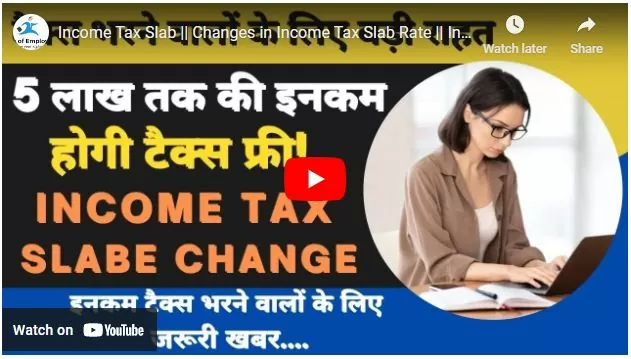Under Section 80C of Income Tax, tax exemption can be taken on investment up to Rs 1,50,000. Those working in the office have to declare where they will invest. In January they are asked for its proof. If they do not submit proof of tax saving, then income tax is deducted from the salary in their account.
The budget day is slowly coming closer. Along with this, activities related to Income Tax have also started. Investment proof is being sought from those working in offices. It will be decided on the basis of investment proof whether your salary will come in full or less in the next month. If you have not submitted the proof of tax saving, then the salary will be sent to your account after deducting income tax. For investment proof, you have to submit proof of where you have invested. First the employee has to inform his office where he is investing. After this, its proof is sought in January.
Under Section 80C of Income Tax, tax exemption can be taken on investment up to Rs 1,50,000. That is, under this section 80C, you can reduce your total taxable income by Rs 1,50,000 by making different investments. Proof of investment: Life Insurance Policy premium receipt, ULIP premium proof, Equity Linked Savings Scheme (ELSS) investment proof, PPF, Sukanya Samriddhi Yojana and NSC investment receipts made on home loan principal Can collect rebate on repair and health insurance premium.
Tax exemption limit
In the year 2014, the then Finance Minister Arun Jaitley increased the tax exemption limit from Rs 2 lakh to Rs 2.5 lakh and also increased the tax exemption limit under Section 80C from Rs 1 lakh to Rs 1.5 lakh. Tax exemption is given on different types of investments under Section 80C of the Income Tax Act. If you have forgotten to claim tax exemption on different types of investments in any year, then later you can claim tax exemption by filing income tax return.
To save tax, under Section 80C, you can invest in Mutual Fund Tax Funds (ELSS), Bank’s Tax Savings Fixed Deposit Scheme, NPS, PPF, Life Insurance Policy, National Savings Certificate and Post Office Senior Citizen Savings Scheme. Tax exemption is also available on the tuition fees of two children. For this, you have to give the fee certificate issued by the school. This is the only expense under section 80C that does not come under the purview of investment.
How to get benefit
If you want to avail tax exemption under section 80C, you have to invest before the end of the financial year. In the year in which you invest in this period, you will be able to get the benefit of tax exemption for the same year. It is up to you to decide how much to invest in which instrument. The total limit with you is Rs 1.5 lakh. Now whether you want to invest the entire money in a single instrument or invest some money in various mediums.
The amount you claim under this section is reduced from your gross total income. It is easy to calculate this income tax. Suppose your gross total income is Rs 10 lakh and you have claimed a deduction of Rs 1.5 lakh under section 80C. So your taxable income will be Rs 8.5 lakh.














